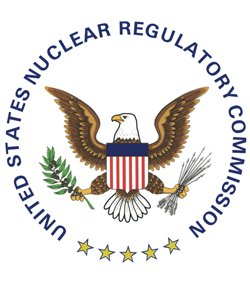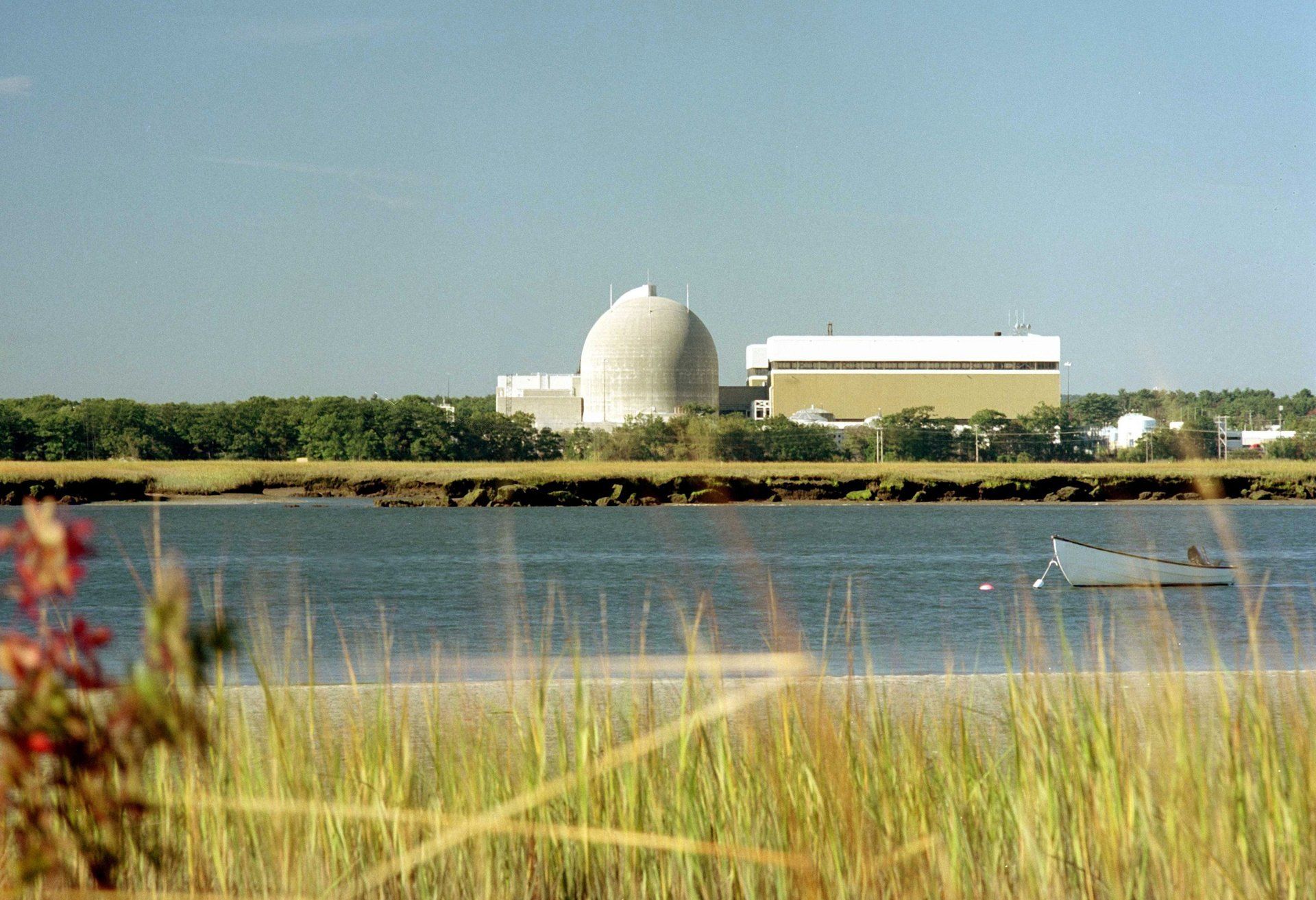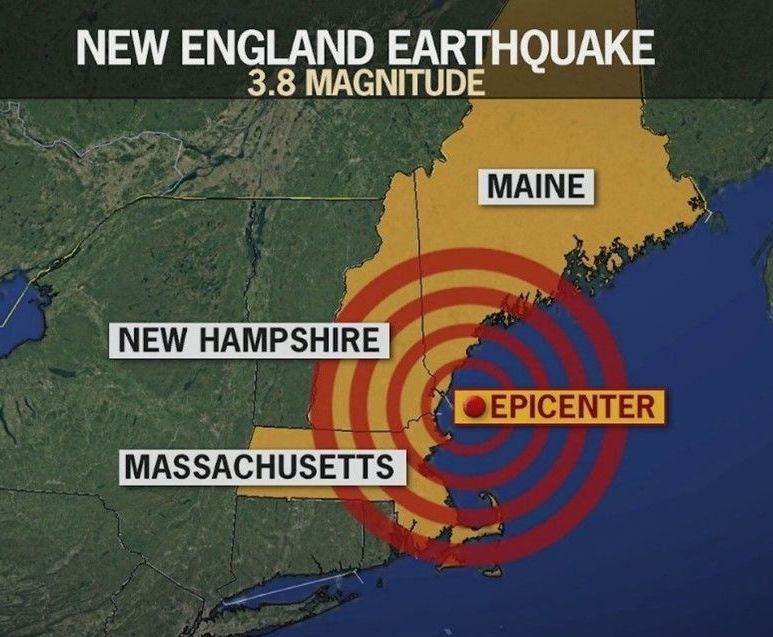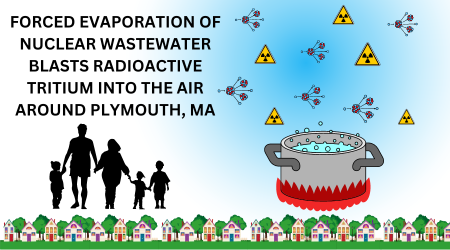Is a pandemic the time to relax nuclear regulations?
- By Natalie Hildt Treat
- •
- 23 Mar, 2020
Insights from an NRC conference call on COVID-19

Last week I had the opportunity to listen in on a public meeting between the US Nuclear Regulatory Commission (NRC) and nuclear industry representatives, including Seabrook Station owner NextEra Energy. The topic: “COVID-19 regulatory impacts.”
Friday, March 20, was about a week into the guidance to “shelter-in-place” due to coronavirus, so presumably most of the participants were calling in from home. At the start of the call, we were reminded that this was an information-gathering dialog, with no decisions to be made and no sensitive information shared.
NRC staffers and industry executives talked about how the pandemic is influencing their work to ensure the safe operations of the nation’s commercial nuclear plants. There was a lot of tech speak. The moderator reminded participants to please spell out acronyms after I emailed them with the humble request. “EGM” stands for Enforcement Guidance Memorandum. Thanks, guys.
There were few specifics as to how the plants are prepared to handle the pandemic, but here’s what I gleaned:
- The NRC wants to prioritize where it can focus resources while carrying out its mission of “protecting people and the environment.”
- All NRC and nuclear-plant employees who can do so are working from home. They are also practicing the usual social distancing, sanitizing, screening and isolating sick employees, etc.
- According to Dr. Jennifer Uhle with the Nuclear Energy Institute, plants have had pandemic-response plans since 2006 to protect workers and ensure continuity of operations; the safe operation of the nation’s nuclear plants is the primary focus.
- NRC is “backing off onsite safety inspections,” and doing as much as they can remotely.
- The plants may be asking for “potential enforcement discretion” and more waivers to maintain qualified personnel and in terms of exams for operator licenses.
- The NRC is considering various regulatory paths to ensure compliance, including flexibility for the spring 2020 outages (when inspections, maintenance and refueling happens).
- The pandemic will trigger NRC regulations for hardship provisions.
Listening to the conversation, I got the distinct impression that streamlining approvals, relaxing of inspection and reporting requirements, and a heavier reliance on the nuclear plants to oversee their own safety is where things will be trending during the pandemic. Come to think of it, that sounds like the way things have been headed in the nuclear industry under the current administration. But I digress.
On the one hand, it makes sense to reduce administrative burdens and make it easier for the plants to focus on their core objective of operating safely. Certainly, having safe, reliable electricity is vital to all of us during this challenging time. Yet the lack of transparency, and the appearance of federal regulators giving “licensees”--as the plants are known--a bit of a pass during a time where so much is at stake, gives one pause. We are talking about atomic reactors, after all.
Kevin Kamps from the watchdog group Beyond Nuclear was on the call. “We’ve been hearing a lot about waivers and loosening regulations in a time where it seems we need more focus on public safety,” said Kamps, noting that with electricity demand down, there may be plants that don’t even need to be operated now. “It seems prudent and wise from a safety perspective that reactors not needed now should go into controlled shutdown in this time of great uncertainty and high risk,” said Kamps.
Several members of the public had questions about whether and how the NRC would oversee a situation if a nuclear plant were particularly hard hit by the pandemic. How would they ensure that they had enough qualified, healthy and well-rested workers to safely operate? One caller referenced the fact that several of the nation’s air traffic control towers have been impacted by COVID-19.
Scott Burnell, public affairs officer with the NRC, said, “If any plants come to a point where they can’t meet regulatory requirements such as staffing, they are required to contact NRC.” Burnell explained that while plants could request regulatory relief, there are requirements to reduce power and potentially shut down if they aren’t able to meet key regulatory requirements such as staffing.
Ho Nieh, Director of Nuclear Reactor Regulation, said, “I hesitate to speculate, but the NRC has a variety of mechanisms to enforce its requirements, including shutting a plant down.”
One of the reasons I was on the call was to try and get some more specifics about what’s in a pandemic-preparedness plan, in particular for Seabrook Station, our nuclear neighbor here at C-10.
Bill Parks, general manager for operations at NextEra, was on the call. So when it came my turn to ask a question, I figured I’d give it a shot and ask him directly.
“What specifically can you tell us about how Seabrook Station is responding to protect your team and ensure continuity of operations? Are staff being asked to live at the plant? Are there longer shifts or are you requesting relief on licensing requirements for certain staff? What do you do if you get close to the minimum staffing levels when people start getting sick?” I asked.
The NRC’s Scott Burnell quickly jumped in to explain that we were to direct questions to the NRC, but Mr. Parks was free to answer if he liked. He declined.
As the call proceeded, I got an email from Lindsay Roberston, senior communications specialist for NextEra Energy. I had tried earlier in the week to get some insights from her on some of the concrete ways that NextEra is preparing in the face of this pandemic. Robertson’s comment was brief and rather unilluminating.
“All nuclear facilities, including Seabrook, are required to have detailed plans and procedures in place that consider a wide range of emergency scenarios, including pandemics. We are monitoring the COVID-19 situation very closely and will keep the safety of our team and the public as the top priority in all our decision making,” wrote Robertson in an email after one of her colleagues heard me questioning her boss on the call.
Yeah, okay. I get it. There are a lot of security matters at stake, and they want the public to know that they’ve got things under control without being pressed for specifics. But personally, I would feel better with a bit more honesty. Like, are people being asked to live at the nuclear plant? How are they working to stop the spread of illness among their employees? What will happen to our electric grid if too many workers at Seabrook, (or any other power generator, for that matter), fall ill?
None of us has lived through a pandemic like this. We’re thinking about our own health, about the hardships our friends and neighbors are going through. We’re grateful to the essential workers who are keeping things running: food, health care, news, sanitation workers, and of course utility companies and energy producers.
But pandemic or not, the public deserves to know what federal regulators are doing to keep us safe. To the extent that they are willing to be forthright, I’d like to think we can ask the same of our nuclear power plants, as well.

MORE INFO
Listen to the meeting here, with thanks to Libbe HaLevy for the recording.
Read the NRC’s public statement about COVID-19, and Newburyport Daily News coverage of the impact of coronavirus on Seabrook Station from March 23.
NextEra issued this press release on March 17 about how they are donating $1.5M to vulnerable people impacted by COVID-19. To date, we could find no public statement about how they are handling the impact of the virus on their corporate operations, including Seabrook Station.
Read the latest news, including coverage on WBUR and a New York Times article, here.
Follow us



